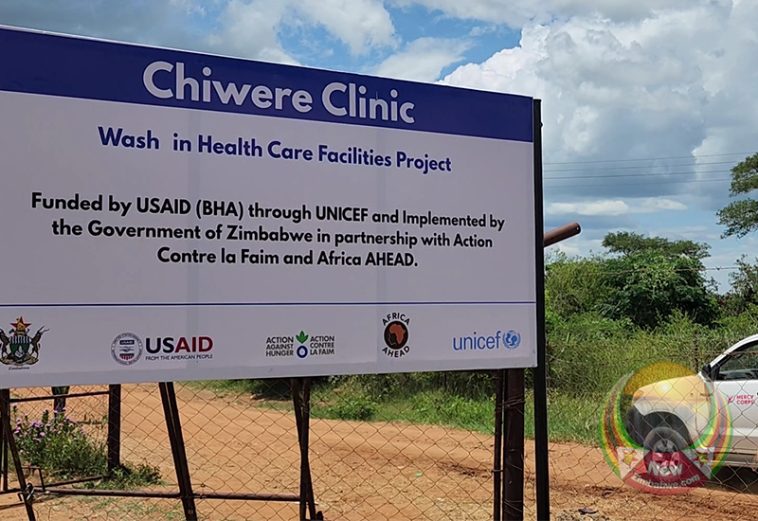By Leopold Munhende recently in Manicaland
FOR most urban dwellers in Zimbabwe the current water crisis is all about failure to use their taps and cisterns, the longing for a shower, or at worst a 200m walk to a community borehole where, despite the hustle, they do fill up 20-litre containers and head home.
For pregnant women in rural Manicaland, deep after impassable gravel roads of Gutaurare, some 100km south-east of Mutare the shortage bordered on life and death.
Until recent interventions, there was a choice between either giving birth at home where water could be accessed closer but with ‘help’ from unskilled relatives or clinics where water was as scarce as hen’s teeth.
Prone to life-threatening heavy rains, cyclones and tsunamis, communities in Zimunya and Odzi are among 40 others who have benefitted from a USAID-sponsored programme to install solar-powered boreholes at their clinics.
This Water, Sanitation and Hygiene (WASH) initiative is funded through UNICEF and implemented by Africa AHEAD with assistance from the government in Manicaland and Harare provinces.
It has not only provided reliable, clean water in clinic wards, operating rooms and outside; expecting mothers can now take a hot shower without any hustle, something they would have thought a luxury just a couple of months ago.
“We no longer walk long distances to look for water as was the case for expecting mothers here,” said 25-year-old Tracey Gorogodo moments before she was admitted at Mambwere clinic in Mutare rural district’s Ward 24.
“There was a time when we would shy away from this clinic and opt for home deliveries instead because being expected to carry a 20-litre pail of water for over 100 metres was too much for us. That has changed.”
Gorogodo, who was in the company of her toddler daughter, said she had to go to Mutare for her first delivery.
Maternity wards at Mambwere and Chiwere clinics now have potable water, state-of-the-art sanitary sinks and showers for expecting mothers.
The over 100-metre trek for water is now a thing of the past at Mambwere clinic as the pump is doing that work for them while a 5,000-litre water tank ensures they have enough for their vegetable garden within their compound.
With a maternal mortality rate (MMR) of 363 per 1,000 live births, at least four women die every day in childbirth as a result of poor obstetric services at Zimbabwean clinics and hospitals according to the United Nations Populations Fund (UNPF).
According to the Zimbabwe National Statistics Agency (ZimStat), the figure is higher in rural communities such as Odzi district, at 402 per 100,000 live births.
“Our community no longer struggles to access water,” said Esther Fombe, Sister in Charge at Mambwere Clinic.
“We could not assist expecting mothers without water, we did not have nutritional gardens and we now have all that. We might just want to expand our clinic as it is small, we have one delivery room and are usually forced to attend to one at a time.”
Access to clean water has been on a downward spiral in Zimbabwe. The latest figures put it at less than 28% of the population. According to UNICEF, WASH issues remain a major issue especially in rural areas where communities lag behind at 35%.
Memory Maparanyanga has been at Mambwere clinic for over 10 years and told this publication that she had been forced to use the little water available then sparingly, at times exposing herself and her patients to diseases that now seem like yesteryear threats.
“Before they did there was no infection control because after attending to each sick person you would go and wash your hands in a bucket in the consultation room,” said Maparanyanga, who is the Chiwere Clinic Sister-In-Charge.
“In the past, we did not have water, but since last year when Africa AHEAD installed a solar water system our lives and work are much easier to deal with.
“Our expecting mothers are now using hot water, their toilets and bathrooms have been rehabilitated and modernised. They are now inside their wards making it easier for them, especially at night. The lighting too is making their experience here more comfortable.
“We have now gone four months without electricity but are supplying the whole growth point with water as a result of the help we got.”

